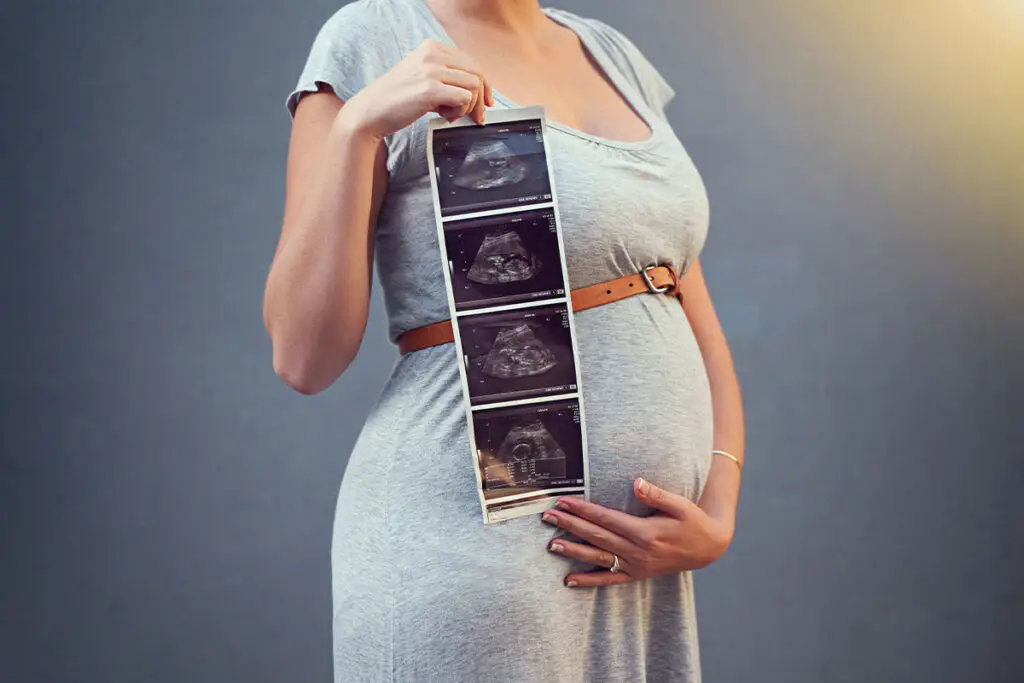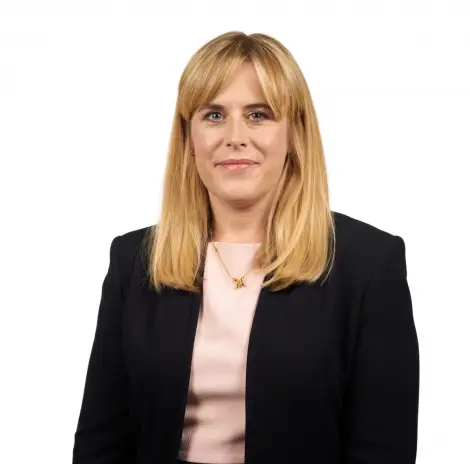NOW-fertility in conversation with Nichola Bright & Jane Tenquist, Family Law Team, Myerson Solicitors
IVF is a key part of surrogacy today, especially because most arrangements now use gestational surrogacy. In this situation, the surrogate isn’t genetically connected to the baby—she simply carries the pregnancy. This approach allows intended parents to have a baby that’s biologically theirs, even though someone else is helping them bring the child into the world.
NOW-fertility provides patient-centred, high-quality fertility treatments across the UK, Europe, North Africa, and the Middle East. Through a trusted international network of partner clinics, NOW-fertility makes world-class, cross-border treatments—including IVF and surrogacy—more accessible than ever.
UK patients considering gestational surrogacy can undergo IVF at our UK partner clinic in London to create embryos. However, for UK citizens, these embryos must be used within the UK for surrogacy purposes.
For those seeking shorter wait times or more cost-effective
options, or who are not UK citizens, IVF can instead be carried out at
NOW-fertility’s fully licensed partner clinics in Krakow, Poland, or Athens,
Greece. Embryos created at these locations can be safely and securely
transferred using NOW-fertility’s affiliated specialist courier services, to an
overseas destination where full surrogacy using IVF embryos is legally
permitted.
Is surrogacy right for me?
The most common indications for surrogacy include:
- Absence or congenital abnormality of the uterus making it either impossible or unsafe for a woman to be pregnant herself
- General health problems for which carrying a pregnancy is not recommended
- Recurrent pregnancy losses (i.e., miscarriages)
- Recurrent failed IVF cycles
- Previous complications in pregnancy because of which subsequent pregnancies are not recommended
What are the legal implications of surrogacy?
Surrogacy arrangements are not enforceable under UK law and intended parents must follow UK law to obtain legal parenthood for the child. However, intended parents must bear in mind that surrogacy arrangements may be enforceable in the country they have undertaken the surrogacy and they may be subject to the laws of that country. As such, intended parents will need legal advice both in that country and in the UK.
Surrogacy and Parental Rights in UK Law
In the UK, it is only UK law that determines legal parenthood. As such, neither a birth certificate nor a court order from a foreign jurisdiction will have any impact on determining legal parenthood in the UK.
The woman who gives birth is the legal mother of the child, regardless of genetics or any foreign legalities. If the surrogate is married, her spouse will usually be the second legal parent.
For that reason, after birth, the intended parents will need to make a special court application to obtain parental rights, known as an application for a Parental Order. This will transfer legal parenthood and parental responsibility from the surrogate (and her husband, if she is married) to the intended parents.
International cases are usually transferred to the High Court. The specialist Judges in the High Court will issue guidance concerning the evidence that is required before a parental order can be made.
Nationality and Citizenship
The child’s nationality will depend on their legal parenthood at birth. There are various options for the acquisition of citizenship, which may well be automatic. Every case is different and turns on its own facts.
Myerson have connections to a network of highly experienced immigration experts to ensure that you can be provided with timely and appropriate advice.
Travel documents
For children to be able to travel to the UK, they need either a UK passport or entry clearance for the UK.
Acquiring citizenship and travel documents can take several months, and the intended parents must be prepared to stay with the child in the country where the surrogacy took place until such a time as they are able to travel home with their child. The surrogacy agency and clinics should support the intended parents during this time.


How to apply for a Parental Order after international surrogacy
To make an application for a Parental Order, a number of conditions must be met. Surrogacy agencies dealing with British intended parents must be aware of these conditions and provide all the documentation necessary to meet them.
Applications can be made by anyone over 18 and in an “enduring family relationship”, married, in a civil partnership or unmarried. Single parents can also apply for Parental Orders. Parental Orders can be made in favour of opposite-sex and same-sex couples.
The application should be made within six months of the child being born and:
- The surrogate (and her husband, if relevant) must freely consent to the transfer of legal parenthood not earlier than 6 weeks after the birth and this consent must be confirmed again in court proceedings. The consent of the surrogate (and her husband, if relevant) should be confirmed by using form A101;
- At least one of the intended parents has a genetic relationship to the child;
- At least one of the intended parents must be domiciled in the UK;
- The child must be living with the intended parent(s) in the UK at the time of the application. As such, it is essential that the surrogacy agency provides the necessary support and documentation for the intended parents to be able to obtain/claim British nationality and to apply for travel documents to enable them to return to the UK with their child.
The UK court will need to send to the surrogate (and her husband, if relevant) all papers of the court proceedings transferring parenthood. Therefore, the intended parents must give notice to the surrogate (and her husband, if relevant) of the application for the Parental Order. This should be confirmed by completing Form C52.
There is no need for the surrogate to participate in the court proceedings, but there must be an acknowledgement that the papers have been received and a confirmation that she (and her husband, if relevant) does not wish to participate in the court proceedings or challenge the transfer of parenthood to the intended parents.
The surrogate must be directly contactable throughout court proceedings. For this purpose, the intended parents will need the home address of the surrogate. It is not enough to provide the address of the surrogacy agency and could prevent a Parental Order being made.
Once you have made an application for a Parental Order, a Parental Order Reporter will be appointed by the Court. They will assist the Court in deciding whether a Parental Order is in the child’s best interests.
What will the Parental Order Reporter consider?
The child’s welfare will be the Court’s paramount consideration when deciding whether to make a Parental Order. Consideration is given to the welfare of the child and in particular, the ‘welfare checklist’, including, non-exhaustively:
- The needs of the child;
- Any possible risk of harm to the child;
- The relationship the child may have with any relatives; and
- The child’s background and whether they will grow up with a knowledge of their origins.

The Parental Order Reporter will need to establish that the surrogate (and her husband, if relevant) consent to the making of the parental order. The Parental Order Reporter may also carry out background checks with the local authority and the police to see if there is any information held that would be relevant to the child’s safety.
The Parental Order Reporter will prepare a report for the Court to recommend whether a Parental Order should be made. On the guidance of the Parental Order Reporter and on consideration of the international complexities which will vary from case to case, the court can make a Parental Order transferring legal parenthood to the intended parents.

A note on payments to surrogacy agencies
UK law does not permit surrogacy agencies to work within the UK on a commercial basis, including negotiating a surrogacy on a commercial basis. However, this does not make commercial arrangements in other countries illegal and does not apply to agencies when operating outside of the UK.
In order to transfer parenthood to the intended parents, the court will need to authorise any money that has been given or received in relation to the arrangement. All payments made to the surrogate and the surrogacy agency must be documented in detail. Surrogacy agencies must provide intended parents with a detailed and itemised invoice, which sets out the sums paid in relation to the surrogacy arrangement, especially sums received by the surrogate.
The courts have consistently approved payments made to foreign surrogates and surrogacy agencies.
Finding a solicitor
Surrogacy and in particular, international surrogacy, is a specialist area of law. It is therefore important to seek legal advice at the first opportunity from a family solicitor who is experienced in this field of practice.
NOW-fertility works with the family team at Myerson Solicitors, renowned for their knowledge and solution-focused advice, include specialist surrogacy experts who will be able to provide strategic and timely assistance. The team regularly work with both intended parents and fertility clinics and provide timely advice as to their legal obligations. They offer services for Intended Parents throughout England and Wales from their offices in Greater Manchester.
Myerson’s sector-leading surrogacy offering is guided by Jane Tenquist and Nichola Bright.
Jane is the Head of the Family Team and is noted for her approach to client work which is noted for its care and attention to detail. Notably, Jane successfully acted in the reported case of A and Others v HFEA [2015] EWHC 2602 (Fam) acting for Manchester Fertility Clinic. This case was highly publicised and was adjudicated by the President of the Family Division.
Nichola is a Partner in the Family Team and is recognised as a “notable expert on fertility and surrogacy issues” (Legal 500). Nichola’s thought leadership is regularly featured in legal press and she is a member of the UK & Ireland LGBT+ Family Institute and Vice Chair of the UK200 Family Group.
The Family Team can be contacted on +44 161 941 4000 or by email at lawyers@myerson.co.uk
To contact NOW-fertility, please click here or email us directly at enquiries@now-fertility.com


Published by NOW-fertility’s Communication Department.
Communication Manager: Annette Eckersley
E: annetteeckersley@now-fertility.com
This information was correct at the time of publishing and may not reflect our current practices, prices or regulations.





